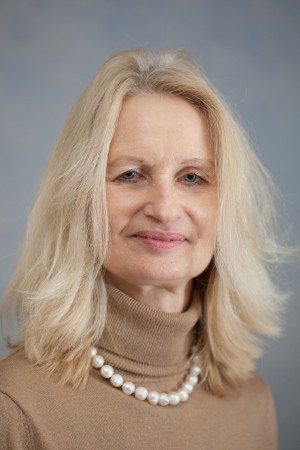For 30 years, the DAAD has been funding Development-Related Postgraduate Courses (EPOS), which prepare young professionals from developing countries to shape change in their homelands. In the interview, Head of Section Gabriele von Fircks talks about how the programme and the courses have changed and what will be important in the future.
Why is the DAAD programme still important after 30 years?
Well-educated and internationally networked professionals are as crucial as ever to the development of their countries. In the DAAD-funded EPOS programme, they’re not just trained to be experts in their fields but also to be good managers. As multipliers, they stimulate development processes in their home countries and work on solutions to regional and even global challenges. Alumni surveys confirm this: about three quarters of the graduates say that were able to effect changes thanks to their current positions.
How have the courses offered within the scope of the DAAD programme changed over the years?
In 1987, no international master courses existed in Germany. Back then, the DAAD supported institutes of higher education in setting up postgraduate courses related to development. Funding began with four engineering courses and three programmes in the field of regional planning.
With the conversion to bachelor and master degrees in the course of the Bologna Process, many such master programmes were created at German institutes of higher education. For this reason, we now only accept established programmes that meet specific criteria for funding. We currently support 44 degree courses. Topics range from economics, business and development cooperation through engineering, mathematics, regional planning, agricultural sciences and forestry to environmental sciences, medicine, law, education and media studies.
Since digitalisation has long taken hold in higher education, blended learning courses that combine online and classroom phases can now apply for funding as well.
How does exchange between degree courses and scholarship holders function?
Programme networking has continued to develop right along with the growing number of courses offered. In the 1990s, the first programmes joined together in the Association of Postgraduate Programmes with special Relevance to Developing Countries (AGEP). Since 2015, the DAAD has financed an AGEP network coordinator who pushes the networking of the degree courses forward.
To help scholarship holders network, the DAAD invites them to an annual network meeting. Moreover, students can organise their own workshops and invite other participants from the EPOS programme.
How has the mixture of scholarship holders developed?
EPOS have always been open to applicants from nations on the OECD’s DAC list of developing countries. But due to the larger number of degree courses, more scholarships can be awarded – so more countries can be covered. Each year about 270 scholarship holders from developing countries begin their studies in one of the funded degree courses.
What happens to the degree courses that have been part of EPOS for many years?
Long funded programmes, such as the Postgraduate Program Renewable Energy at the University of Oldenburg and SPRING – Regional Development Planning and Management at the TU Dortmund, have continued to develop steadily. The DAAD expects the programmes to adapt to current circumstances and develop plans for the future. For this reason, they have to reapply for funding on a regular basis.
What all EPOS have in common is that they don’t simply transfer technical know-how. They also offer seminars on soft skills and intercultural competence. The DAAD also attaches great importance to a concept that helps tie alumni to the programme long-term.
How does the DAAD maintain contact with former scholarship holders?
The DAAD regularly informs scholarship holders of additional, attractive DAAD programmes to which they can later apply as alumni. Moreover, alumni are often questioned about their current positions and what impact the programme has had on their career.
Last but not least, the network coordinator of AGEP is involved. He organises events such as regional seminars on reintegration in the home labour market. DAAD alumni and employers speak about the expectations of and from alumni who have studied in Germany. We also figure out ways for alumni to help support current scholarship holders in reintegrating.
Which direction should the DAAD programme take in the future?
Networking among the degree courses will remain a central topic. Since many of the degree courses complement each other, scholarship holders may be able to take modules from other degree courses in the future. In this case, the degree courses have to clarify questions involving scheduling and the recognition of achievements. AGEP is working on this topic, and the DAAD would like to support this project with its available means.
Gabriele von Fircks has been heading the DAAD-Information Centre Jordan since April 20.






